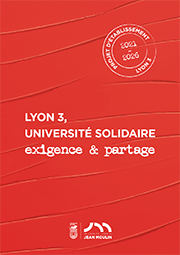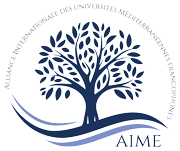AccueilRechercheProgrammes et productions scientifiquesThèsesThèses soutenuesThèses soutenues - 2006-2021Thèses soutenues - 2018
-
Partager cette page
- Recherche,
ADEL ZAHER Mina
L’ordre public dans les relations privées internationales : l’exemple des contrats internationaux devant le juge étatique
Publié le 6 février 2019 – Mis à jour le 6 février 2019
Thèse en droit mention droit international privé, soutenue le 19 octobre 2018.
L’autonomie de la volonté est un principe relatif à la liberté des parties quant au choix de la loi applicable au contrat international. Cependant, ce principe est limité par les règles d’ordre public, et plus généralement les dispositions impératives, réduisant l’étendue de cette autonomie. Afin de perfectionner la mise en application de ces règles tout en garantissant une certaine prévisibilité, il s’avère important d’étudier en détail l’origine et la nature des règles d’ordre public. Une étude comparée avec le droit international privé égyptien s’avère nécessaire pour perfectionner les mécanismes actuels. Le débat conceptuel actuel met en évidence le rôle de la coopération internationale, outre les intérêts purement étatiques, ce qui suscitera un nouvel ordre public transnational, voire supranational.
The freedom of choice is a principle referring to the freedom of the parties concerning the choice of the law ruling the international contract. However, this principle is limited by public policy, which reduce the extent of this freedom. In order to improve the application of these rules with a minimum of predictability, it is important to study in detail the origin and nature of the rules of public policy. A comparative study with Egyptian private international law is needed to take advantage from all current mechanisms. The current conceptual debate highlights the role of international cooperation, in addition to purely State interests, which will tend to create a new transnational, or even supranational, public policy.
The freedom of choice is a principle referring to the freedom of the parties concerning the choice of the law ruling the international contract. However, this principle is limited by public policy, which reduce the extent of this freedom. In order to improve the application of these rules with a minimum of predictability, it is important to study in detail the origin and nature of the rules of public policy. A comparative study with Egyptian private international law is needed to take advantage from all current mechanisms. The current conceptual debate highlights the role of international cooperation, in addition to purely State interests, which will tend to create a new transnational, or even supranational, public policy.
Mots-clés : Droit international privé - Ordre public - Contrats internationaux - Loi de police - Exception d’ordre public international - Dispositions internationalement impératives - Lois de police étrangères.
Keywords : Private international law - Public policy - International contracts - Overriding mandatory provisions - International public policy argument - Internationally mandatory provisions - Foreign mandatory rules.
Directeur(trice) de thèse : Edouard TREPPOZ
Membres du jury :
- M. Edouard TREPPOZ, Directeur de thèse, Professeur des Universités, Université Jean Moulin Lyon 3
- Mme Olivera BOSCKOVIC, Professeure des universités, Université Paris V Paris Descartes,
- M. Sami BOSTANJI, Professeur des universités, Université de Tunis El Manar, Tunisie
- M. Louis D’AVOUT, Professeur des Universités, Université Paris 2,
- M. Hugues FULCHIRON, Professeur des Universités, Université Jean Moulin Lyon 3.
Président du jury : Hugues FULCHIRON
Documentation
Mise à jour : 6 février 2019







